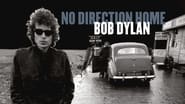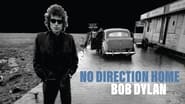Stometer
Save your money for something good and enjoyable
Smartorhypo
Highly Overrated But Still Good
Erica Derrick
By the time the dramatic fireworks start popping off, each one feels earned.
lampic
Martin Scorcese "directed" or should we say "tailored" original footage pieces (in many occasions black-and-white snippets) into cohesive story that gives a glimpse into a world back than, Dylan's background and early influences. Dylan himself talks about these times and he comes across as clear-headed, witty and faintly intimidating - he skips completely any mention about his family, like they never existed and goes straight into arrival in New York where Greenwich Village was a center of folk music and this is where instantly he found his natural place between hungry but enthusiastic beatniks, poets and all sorts of artists who embraced him for who he was, one of them. Although Dylan's motives for arrival in New York were completely different (he wanted to visit his idol Woody Guthrie) somehow destiny placed him right where he belonged and just watching the atmosphere around him in this eccentric center of all kinds of creativity is a huge thrill to see.There were literary a hundreds of young folkie artists around at this time so its a miracle that young, skinny and defiantly unglamorous Dylan got attention of "Columbia records" that eventually gave him chance to record and catapulted him into stardom. Not some private owned, independent company without distribution but "Columbia records" that charted huge hits behind commercial artists of the day, usually backed with angelic choruses and strings. Surely there was a whole team of people involved, including savvy manager who made sure that Dylan's songs were also covered and recorded by many pop artists but eventually listeners and record buyers would come back to the source. Folk queen Joan Baez became his biggest champion and proudly introduced him to her audience, for a while they were THE couple of 1960s. The documentary makes clear that Dylan could go on like a protest singer forever but something inside of him itched for a change and he had to follow his artistic muse that led him to completely another direction, so he left Baez and protest songs and moved into blues rock that alienated a lot of followers - reaction of the audience is stunning as they would literary take this change very personally and yell at him on a stage. At certain point of the movie the whirl around him (specially on tours) becomes truly uncomfortable with thousands of people having their own expectations and becoming frighteningly hostile, from autograph seekers to a journalists ("suck your sunglasses" somebody with a camera orders during a press conference) - this literate, clever and artistic young man faced a mass hysteria mixed with amazing patronizing and deliberate misunderstandings. The movie ends in 1966 when motorcycle accident literary stops him in his tracks and forced him to re-think his next steps. Amazing not only because of historical perspective of politics, music industry and atmosphere at the time but also because lots of colleagues testify their experiences and views.
Chris_Docker
People ask, but why did they boo when Bob Dylan started playing electric guitar? Surely it wasn't THAT big a deal??I was alive then. Believe me, it was. People got VERY upset about it. I think it was something to do with investing so heavily, in an emotional way, with his folk persona. He symbolised every teenager's dream of righteous rebellion. Audiences were far less fragmented in those days. People staked a lot on believing in him (or rather, believing what they wanted his lyrics to mean). You could cut the air with a knife when you asked someone, "if they liked his electric stuff".Bob Dylan reached the height of his fame after three or four albums of (largely) protest songs. He accompanied himself on nothing more than an acoustic guitar and harmonica. Some were simple stories. Some were deep reflections on man's inhumanity to man. He's had no singing training and his voice was rough. But his lyrics captured the imagination of a generation. It was the time of mass protests against the Vietnam war. The Beatles. The Rolling Stones. Boys wearing their hair long was an act of defiance. Revulsion against the values of their fathers, against a world 'gone wrong'. When I took a Bob Dylan record home, my father told me, "Get that music out of this house!"The only problem from Dylan's point of view was, he wasn't into being a figurehead for the antiwar movement or anything else. He just wanted to write his poetry. And sing. It's all he did. Many organisations were already on knife-edge over his refusal to 'lead the parade'. Dylan just kept on writing. Albums went platinum. And Dylan kept on writing.One day he put some of the new poems to music with electric guitars and a backing band. In retrospect, they are easily seen as the same kinda stuff. More sophisticated maybe, but still protestin'. Yet his fans didn't see it like that. The wandering minstrel image was gone. He looked not like a humble folk artist but like a rock star. It all aroused incredible animosity, especially when the technical limitations of some of the sound sets meant people couldn't hear the lyrics properly.Dylan didn't believe in pandering to his audience, although at one point he observes that he can't get in tune if they're booing. There is a concert where they boo continuously (Why did they buy tickets? he wonders . . . But with no thought of going backwards). The only break in the crowd's response is when he plays a song they recognise cos it happens to be near the top of the charts.These were kids that really listened to his lyrics. He could fill the Albert Hall and well-behaved, thoughtful teenagers had sat in rapt attention as he intoned Masters of War or Blowin' in the Wind. They wanted his poetry. But more than that, they wanted a hero. When he 'went electric', the volume seemed to crash through the genteel folk stage like a blasphemous typhoon wind. No Direction home is no idealised portrait of Dylan. Meandering through several hours of archive footage, interviews and concerts, Scorsese presents him not as a hero but as a man. The sound quality on some of the electric sets really is abominable. The pre-fame Dylan is accused of stealing some rare records and of telling lies if it was necessary to get on. But this seemingly rambling biopic eventually drives home a point that baffled his audiences at the time: Dylan, in all his guises, just wrote poetry. If people used it for anything else that was up to them.No Direction Home is not the gripping viewing you might expect for a portrait of one of the most famous recording artists of all time. But it gets to the heart of the man in a way that even Dylan's own (much later) autobiography hardly got to. For those who have read the biography, those early years are beautifully sketched out in the film. Kerouac, Alan Ginsberg, even Woody Guthrie. Talking heads include Joan Baez giving her recollections, and the old man himself, looking back on his early rise to fame with an openness that few have witnessed before. It is a very different film from Pennebaker's Don't Look Back. A more complex portrait than the earlier film set out to achieve, No Direction Home is Bob Dylan deconstructed.One day someone will make a fictionalised movie of Bob Dylan. And Scorsese's documentary film will be a major historical resource.
Michael_Elliott
No Direction Home: Bob Dylan (2005) **** (out of 4) Being a die-hard Dylan and Scorsese fan meant I was really looking forward to this documentary and for sometime I was a bit worried that hype would kill the thing for me but it clearly didn't. Dylan's story is something that anyone could eat up and Scorsese pulls out all the stops in somewhat trying to explain Dylan. While Dylan doesn't pour his soul out here I think Scorsese, with his great talent of using music, helps make it clear all the stuff that was going through Dylan at the time as well as what was going through the country. The way Scorsese used "A Hard Rains A-Gonna Fall" and connection it to the JFK assassination is quite remarkable and even non-fans could feel the power of the song and it's lyrics. Scorsese does a brilliant job of telling the story and the majority of the documentary takes a look at Dylan's early days. Then, kinda like the downfall of Henry Hill in Goodfellas, Scorsese cuts to the final scenes and uses fast editing to show how quickly Dylan tired down. The infamous European tour of 1966 has had hundreds of books written about it and it's fascinating that Scorsese doesn't use any narration but instead just uses news clips and old interviews to tell the story. We can just look at Dylan and see that the end is nearing.Scorsese has easily created one of the greatest documentaries out there that might appeal to non-Dylan fans more than the die hards. When people ask me who Dylan is and what he did I never really know where to start but this documentary is a good place to show how he changed music while trying to change the country. As a die-hard fan the documentary also gives all sorts of never before released concert footage, which is a huge bonus. The infamous "Judas"/"Play It F*cking Loud" footage is like a holy grail to Dylan fans and it's here complete. There's plenty of other music of the times with Joan Baez and Johnny Cash as well. Scorsese really nailed down the Dylan aspect but it's also nice seeing him capture the mood of the Civil Rights and other issues that were all going on at the same time. To music buffs and Dylan fans this is a very important document but it's also very important to American history.
beasymc
the best rock movie of all time. Martin is pure genius. I just love the guy. long movie, sure, but part two just flies by. What an insight. Personally, I think Martin should make more of these on artists that he admires like this one on Bob Dylan. Where does he get this stuff. I read where he really didn't talk to Bob while he was making this movie. even more brilliant. I've got to think Dylan had to love this when he saw it for the first time. It always amazes me how most people just don't get it. The questions they ask, yikes. All i can say is it is a great story. I hope someone does something like this on Scorsese. I love his passion to try to get things right. He is inspiring. Thanks again Martin, and to you too, Bob for having the courage just to be you in the face of it all.





